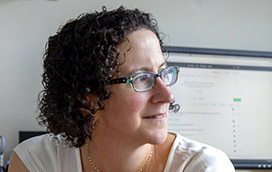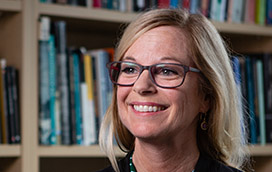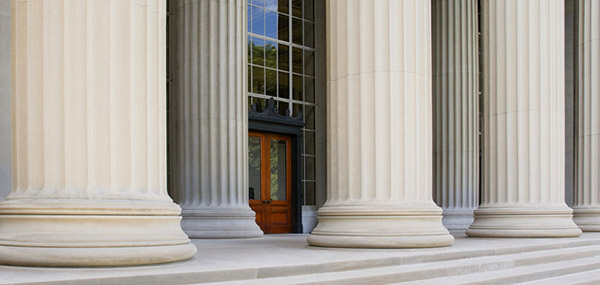Recent Media Stories + Major 2018 Awards
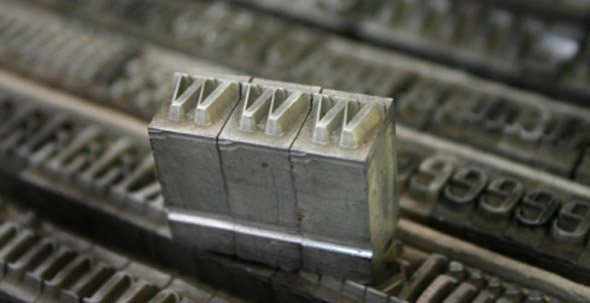
A section of the Great Ideas Newsletter
December 2018 edition
MAJOR 2018 AWARDS
PHILOSOPHY
Stephen Yablo receives Lebowitz Prize for Philosophical Achievement
Awarded by the American Philosophical Association and the Phi Beta Kappa Society, the Lebowitz Prize recognizes outstanding achievement in philosophy. Yablo, Skinner Professor of Philosophy at MIT, is known for his work in logic, the philosophy of language, and metaphysics.
Press Release | Profile | A Philosopher's Dozen
_________________
HEALTH ECONOMICS | COMPARATIVE MEDIA STUDIES
Amy Finkelstein and Lisa Parks win MacArthur Fellowships
Finkelstein, a health care economist, and Parks, a media studies scholar, have each been awarded the prestigious MacArthur award, colloquially known as the “genius grant,” which comes in the form of a $625K fellowship.
Story at MIT News | Finkelstein at MacArthur | Parks at MacArthur
_________________
ECONOMICS
Parag Pathak wins Clark Medal for best economist under 40
Pathak's work on matching students and public schools in Boston and elsewhere allows for more efficient and satisfactory school assignments. The Clark Medal is a major honor, the most prestigious award in the field after the Nobel.
Story at MIT News | Story at Bloomberg: "A top prize for a theory that works"
Recent rankings of MIT disciplines
By Times Higher Education, for 2019
No.1 worldwide for Economics
Story: MIT tops the field
No.2 worldwide for the Arts and Humanities
Story: A leader in the Arts and Humanities
By QS World University Rankings for 2018
MIT ranked No. 1 in Linguistics
MIT, which has been ranked as the top university in the world by QS World University Rankings for six straight years, also ranked within the top five in nineteen out of forty-eight subject areas, including Linguistics and Economics.
MIT News story
ALUMNI AWARDS
ECONOMICS AND MEDICINE
Allan Detsky PhD’78 appointed to the Order of Canada
Desky, an influential physician, professor, and economist, has been appointed to the Order of Canada, one of Canada's highest civilian honors, for his lasting impact on the Canadian health system, including innovative research that informs health policy.
Story at University of Toronto
MUSIC AND THEATER ARTS
Composer Jamshied Sharifi ’83, wins Tony Award
Sharifi ’83, composer, musician, and former MIT visiting artist HAS won the 2018 Tony Award for Best Orchestrations for the acclaimed musical The Bands Visit
Story
_________________
CLIMATE ECONOMICS
Alumnus William D. Nordhaus PhD '67 wins Nobel Prize for climate economics
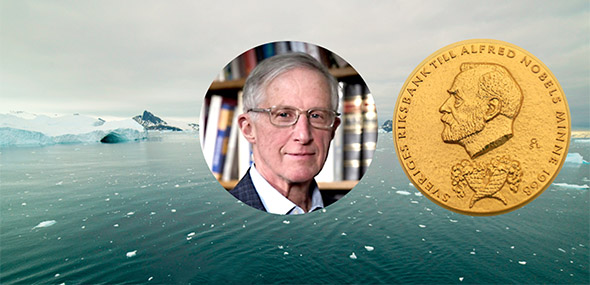
The award recognizes how economic forces can help curb climate change.
A premise of Nordhaus's research: the environment is a public good, shared by all and yet not paid for in any adequate way. By perfecting integrated assessment models, Nordhaus has shown the impact of carbon pricing on curbing climate change. Paul M. Romer of New York University also received a 2018 Nobel for climate-related economics research.
Commentary at The Conversation | Story at MIT News | Nobel website for Economic Sciences
FACULTY AWARDS, CONTINUED
_________________
ECONOMICS
Joshua Angrist and Jörn-Steffen Pischke awarded the Fama Prize
Angrist (MIT) and Pischke (London School of Economics) will share the $250K prize for their book Mostly Harmless Econometrics (Princeton University Press, 2009).
Story | Angrist website | School Effectiveness and Inequality Initiative
_________________
MUSIC AND THEATER STUDIES
Assistant Professor Charlotte Brathwaite awarded Magic Grant
Grantees Charlotte Braithwaite, a theater director, and June Cross, a documentary filmmaker, will explore how foreign interference, gerrymandering, and domestic tactics combined to suppress the black vote in 2016.
Report at Columbia University | 3Q Interview with Brathwaite
_________________
COMPARATIVE MEDIA STUDIES
Marjorie Liu becomes the first woman to win comic industry's top writing award
"Liu took home a Best Writer Eisner Award for her work on the epic fantasy Monstress. The novelist, comic book writer, and attorney expressed shock at being the first woman in the award’s 30-year history to win the writing prize."
Story at Time magazine
_________________
ECONOMICS
Professor Hausman elected to the British Academy
MIT Economist Jerry Allen Hausman, the John and Jennie S. MacDonald Professor of Economics, and a member of faculty of the MIT School of Humanities, Arts, and Social Sciences, has been elected to the British Academy in recognition of his distinction in the field of economics.
Story by SHASS Communications
_________________
MUSIC
Eran Egozy wins $50K grant from Knight Foundation for Concert Cue
Twelve projects designed to harness the power of technology to engage people with the arts will receive $600K from the Knight Foundation. The projects will receive $50,000 each to uncover new, potentially-replicable strategies for cultural organizations to adapt to and thrive in the digital era.
Press Release | Story at Fast Company
_________________
HISTORY
Historian Evelyn Fox Keller receives the Dan David award
Keller, a former MIT professor won for “pioneering work on language, gender, and science” which “has been hugely influential on shaping our views of the history of science.”
Story at Haaretz.com
_________________
ECONOMICS
Amy Finkelstein elected to the National Academy of Arts and Sciences
Four MIT faculty members have been elected to the National Academy of Sciences (NAS) in recognition of their “distinguished and continuing achievements in original research.”
Story at MIT News
_________________
COMPARATIVE MEDIA STUDIES + CAST + CSAIL
VR project “The Enemy” wins 2017 Rose d'Or | D. Fox Harrell
Works from seven countries were honored at the 56th Rose d’Or Awards in Berlin, including “The Enemy,” a virtual reality experience developed by MIT CAST artist Ben Khelifa in collaboration with CMS/W + CSAIL Professor D. Fox Harrell to explore VR’s potential to engender empathy and humanity.
Story at EBU
_________________
ECONOMICS
Victor Chernozhukov receives Humboldt Research Award
Chernozhukov, Ford Professor of Economics, has been recognized for lifetime achievement in research. In addition, he will be invited to carry out research projects of his/her own choice in cooperation with colleagues in Germany.
Humboldt Foundation website
_________________
ECONOMICS
Professors Nancy L. Rose and Parag A. Pathak elected to the American Academy of Arts and Sciences
Among the eight MIT faculty members elected to the AAAS for 2018 are two members of the MIT-SHASS faculty: Parag Pathak, the Jane Berkowitz Carlton and Dennis William Carlton Professor of Microeconomics, and Nancy Rose, the Charles P. Kindleberger Professor of Applied Economics, and Head of the Department of Economics.
Story
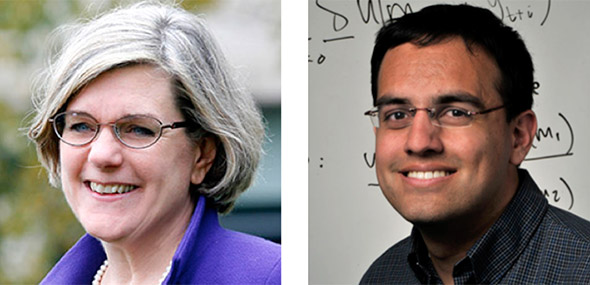
L to R: Nancy Rose, Charles P. Kindleberger Professor of Applied Economics, and Head, Department of Economics; Parag Pathak, Jane Berkowitz Carlton and Dennis William Carlton Professor of Microeconomics
INSTITUTE AND SCHOOL AWARDS
SCIENCE, TECHNOLOGY, AND SOCIETY
Robin Wolfe Scheffler awarded the 2018 Levitan Prize
The prestigious award in the humanities includes a $30,000 grant that will support his research into the factors that influenced the development of Boston’s booming biotech industry. “It’s thrilling to receive this award, particularly at the very beginning of a project,” Scheffler says.
Story by SHASS Communications
_________________
SHASS announces 10 Research Fund recipients for 2018
The SHASS Research Fund supports research in the areas of humanities, arts, and social sciences that shows promise of making an important contribution to the proposed area of activity. The School is pleased to announce ten recipients for 2018: Nikhil Agarwal, Charlotte Brathwaite, Sarah Brown, Lerna Ekmekcioglu, Malick Ghachem, Frederick Harris, Jr, Mark Harvey, Sabine Iatridou, Seth Mnookin, and Ariel White.
More
_________________
INSTITUTE AWARDS
SHASS faculty sweep the 2018 MacVicar Fellow awards
David Autor (Economics), Christopher Capozzola (History), Shankar Raman (Literature), and Merritt Roe Smith (History, and STS), have been named 2018 MacVicar Fellows, the Institute's highest honor for undergraduate teaching.
MIT News story
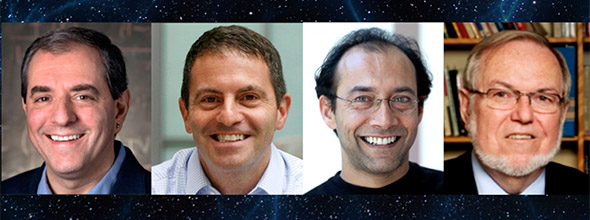
L to R: David Autor, Ford Professor of Economics and associate head of the Department of Economics; Christopher Capozzola, an associate professor of history; Shankar Raman, a professor of literature; and Merritt Roe Smith, the Leverett and William Cutten Professor of the History of Technology in the Department of History and the Program in Science, Technology, and Society.
RECENT IN THE MEDIA LISTINGS
DEMOCRACY AND CIVIL RIGHTS
ECONOMICS DEMOCRACY
The Democracy Dividend: Faster Growth | Daron Acemoglu
Countries that democratize — switch from a nondemocratic regime such as a dictatorship, monarchy, or autocracy to a democratic regime — grow more rapidly in the next 20 years or so, and end up with 20 percent higher income per capita.
Bloomberg News
_________________
POLITICAL SCIENCE
Civil rights and restorative justice | Melissa Nobles
In this CBS news video, Dean Melissa Nobles and Margaret Burnham, who lead the Civil Rights & Restorative Justice project, discuss their work on anti-civil rights violence in the U.S. between 1930-1970. "We are beginning to change the narrative," said Nobles, "such that families who had that violence visited upon them can now talk about it — and it can be understood."
Story on CBS Evening News | Related: 60 Minutes: National Memorial for Peace and Justice
GUN CULTURE
SCIENCE WRITING
Research on gun violence: the common ground on gun safety | Tom Levenson
"Between the pro-gun side and those who want to get rid of guns there’s 'a little oval, where both sides agree. That’s the culture of safety.'" Levenson, a profesor of science writing and an "Ideas" columnist for the Boston Globe, describes the current research and efforts to increase gun safety in the U.S.
Commentary in The Boston Globe
_________________
CENTER FOR INTERNATIONAL STUDIES
On Reducing Gun Violence | John Tirman
"America’s gun culture is a resilient fact of political life," writes Tirman, the Executive Director and Principal Research Scientist, Center for International Studies. "Attempts to reverse the country’s appetite for firearms have largely failed, even as gun violence persists at an astonishing pace. Lately, however, a social movement to challenge gun culture has rocked politics for the first time in a generation."
Commentary for Election Insights 2018
ELECTIONS
MIT ELECTION LAB / CHARLES STEWART III
Where people show up to vote — and where they don't
To calculate county-level voter turnout, we relied on two data sets: total votes cast in the 2016 presidential election, compiled from official sources by the MIT Election Data & Science Lab, and total citizen voting-age population as calculated by the Census Bureau.
Story at Washington Post
_________________
POLITICAL SCIENCE
Broken machines and user error are leading to hour-long lines at polling booths
It's unclear what kind of impact delays caused by broken machines have on actual turnout, says Charles Stewart, director at MIT's Election Lab, which collects and analyzes election data.
Story at Quartz
_________________
Early voting challenges in North Carolina
For voters, convenience trumps longer hours, said Charles Stewart III, an MIT political scientist who studies voting administration. "There's a lot of research that suggests that whenever a polling place moves further away from a voter, they are less likely to vote there," Stewart said.
Commentary at NPR
_________________
Voting machine meltdowns are normal — that's the problem
Based on the social media deluge, it certainly felt like the entire election system was melting down at a rate the country has never seen before. But was it? Charles Stewart III, a professor of political science at MIT and a member of the MIT Voting Project, says it's far too early to tell. "We’re going to have to wait for the data to come in," says Stewart.
Story at Wired
_________________
Stop voter suppression
In North Carolina 158 polling places were permanently closed in the 40 counties with the most African American voters just before the 2016 election, leading to a 16 percent decline in African American early voting in that state.
Commentary at Salon
_________________
Republicans are casting doubt on normal election processes for the sake of winning
Charles Stewart, the director of the MIT Election Lab, noted that, in addition to trying to deal with mailed-in ballots, counties also had to tally their early votes. Florida law doesn't allow officials to count early votes until after the polls have closed.
Huffington Post
_______________
Voter suppression in the U.S. | Adam Berinsky
The silver lining: studies have found that new voting restrictions have only a small impact on voter turnout. What most matters in elections, MIT political science professor Adam Berinsky wrote in 2016, is “[p]olitical interest and engagement.”
Story at Vox
_________________
When Medicaid expands, more people vote | Andrea Campbell
“These are programs that have a major effect on people's lives,” said Andrea Campbell, a professor of political science at M.I.T., who wrote a book on the political legacy of Social Security. She suggested Medicaid could work similarly, by improving people's circumstances and making them more aware of the stakes of government action.
Story at The New York Times
At the Idaho Statehouse in July, a ceremonial delivery of voter petitions from various counties requesting inclusion of a Medicaid expansion initiative on the ballot. The measure won the support of voters on Tuesday. PhotoCredit Darin Oswald/Idaho Statesman, via Associated Press
HEALTH AND HEALTH CARE
KNIGHT JOURNALISM PROGRAM
Q&A with Deborash Blum, author of The Poison Squad
Blum has spent a decade researching and writing about Wiley, who was chief chemist at the US Department of Agriculture at a time when the food system was almost completely unregulated.
Interview at The Boston Globe
_________________
ECONOMICS
On the sale of Athenahealth | Jon Gruber
MIT economist Gruber spoke with WGBH "All Things Considered" host Barbara Howard about what the sale of Athenahealth means.
Interview at WGBH
_________________
PHILOSOPHY
Academics are being harassed over their research into transgender issues
"We maintain that it is not transphobic to investigate and analyse this area from a range of critical academic perspectives. We urge the government to take the lead in protecting research from ideologically-driven attack."
Letter at the Guardian
JOBS AND ECONOMIC HEALTH
ECONOMICS
One big thing: The uprising for higher wages | David Autor
Autor, an MIT professor and one of the world's most respected labor economists, said low unemployment would have to continue for many years to reverse the decades of flat wages.
Story at Axios
_________________
COMPARATIVE MEDIA STUDIES
Google employee protests as part of new tech resistance | Sasha Constanza-Chock
“The Google walkout amplifies the wave of tech worker organizing that we see in #TechWontBuildIt and #NoTechforICE,” says Sasha Constanza-Chock, associate professor of civic media at MIT.
Story at CNBC
INTERNATIONAL RELATIONS
KOREA / SECURITY STUDIES / VIPIN NARANG STORIES
Is North Korea giving up its nukes? It's not.
MIT's North Korea expert Narang points out that the North Koreans consider “final, fully verified denuclearization” to be the denuclearization of North Korea and the United States.
The Boston Globe
_________________
As the votes rolled in from the midterms, North Korea canceled another meeting with Trump officials
“I suspect they have figured they can get a summit without all of these preliminary meetings,” Narang said, adding that the North Koreans would see no point on logistics meetings if they can't get sanctions relief without US verification.
Story at BuzzFeed
_________________
North Korea keeping up work on missile sites, report says
While progress on diplomacy and denuclearization has been slow, it would be unreasonable to expect Mr. Kim to halt progress on his missile program, especially the short-range missiles used to fend off a conventional-weapon attack, says Vipin Narang, a nuclear expert and associate professor of political science at the Massachusetts Institute of Technology.
Story at the Wall Street Journal
_________________
Trump insists things are going fine with North Korea. They're not.
Narang, a nuclear expert at MIT, told me. “These are ... mostly short-range operating bases which [Kim Jong Un] would be a fool to eliminate,” he added, “until and unless there is any deal.”
Story at Vox
_________________
North Korea maintaining more than a dozen missile launch sites, photos show
"Kim said he would mass produce ballistic missiles and nuclear warheads in his New Year's Day speech this year, and that is exactly what he is doing,” said Vipin Narang, an expert on the North Korean nuclear programme at the Massachusetts Institute of Technology.
Story at The Guardian
_________________
Trump expects to meet Kim Jong-un next year as nuclear talks stall
“North Korea doesn't want to waste time haggling with Trump's ‘minions',” Vipin Narang, a politics professor at the Massachusetts Institute of Technology, wrote on Twitter. “They want to hold out for the summit with him directly, where KJU has his best shot of getting major concessions directly.”
Article at The Guardian
________________
POLITICAL SCIENCE
How China plays into Trump's decision to pull of out INF treaty with Russia | M. Taylor Fravel
But many analysts believe it's unlikely that China would be interested in joining either the INF or another treaty. “Given the size of China's conventional ballistic arsenal, this would be require some very creative diplomacy!” wrote M. Taylor Fravel, an associate professor of political science at MIT, on Twitter.
Article at the Washington Post
_________________
CENTER FOR INTERNATIONAL STUDIES
Shinzo Abe Says Japan Is China's 'Partner,' and No Longer Its Aid Donor
Yu Tiejun, vice president of the Institute of International and Strategic Studies at Peking University and a visiting scholar at MIT, said that many Chinese knew little about the aid the Japan provies to China.
Story at The New York Times
ALUMNI IN THE MEDIA
ECONOMICS
Giants offer temp president job to Dodgers' GM Farhan Zaidi
The San Francisco Giants have offered Farhan Zaidi — the general manager of the rival Los Angeles Dodgers — their president of baseball operations job, MLB's Jon Paul Morosi reported Tuesday. Born in Canada, he was raised in the Philippines, and received his undergraduate degree at MIT, where he was an economics major.
Story at Reuters
Farhan Zaidi ready to take a team effort leading Giants
"It's a convenient narrative to see this as kind of a clash of schools of thought. I just don't see it that way at all," the MIT-educated Zaidi said of his analytics expertise with the old-school practices of veteran executive Brian Sabean and manager Bruce Bochy.
Coverage by Associated Press
THOUGHT EXPERIMENTS IN ARTIFICAL INTELLIGENCE
The following news and feature stories refer to "The Trolley Problem," a moral philosophy thought experiment developed by MIT philosopher Judith Jarvis Thomson. For background here is some information on her original work:
The Trolley Problem | Philosopher Judith Jarvis Thomson
If a runaway trolley is destined to hit a group of five people but can be diverted onto a track where it will hit only one, is it right to divert it? What if it can only be stopped by throwing somebody in front of it? Developed by MIT philosopher Judith Jarvis Thomson, now emerita, the famous "trolley problem" has been debated for more than 40 years, as philosophers the world over struggle to understand what principle underlies the different responses elicited by the two scenarios.
In each case, one person is sacrificed to save five. Yet people overwhelmingly support diverting the train and object to throwing a person into its path. Why?
Moral Psychology
Today this question has crossed disciplines, taken up by researchers in the rapidly growing field of moral psychology, which aims to investigate moral responses empirically. Psychology professor Marc Hauser of Harvard, for example, is investigating the theory that some basic moral sense is hard-wired in the human brain — an idea analogous to MIT Professor emeritus Noam Chomsky's theory of universal grammar. Hauser has incorporated variations on the trolley problem into his "Moral Sense Test," an online survey that initially posed moral questions to 5,000 subjects in 120 countries (the test has since been taken by upwards of 150,000 people). Responses have proved remarkably consistent across gender, age, educational level, ethnicity, religion and national affiliation.
Why?
Professor Thomson nevertheless sees polls as irrelevant to the ethical question. In a recent paper re-examining the trolley problem, she writes that despite popular opinion, it is impermissible to kill one person by diverting the train to save five; the bystander may choose to do nothing. There is a major moral difference between killing five people and letting five die, Thomson says. Why remains a subject for debate. More

Judith Jarvis Thompson, MIT Professor of Philosophy Emerita
_____________
What can the Trolley Problem teach self-driving car engineers?
Researchers in the Scalable Cooperation group at the Massachusetts Institute of Technology Media Lab revived and revised the moral quandary. It was 2016, so the trolley was now a self-driving car, and the trolley “switch” the car's programming, designed by godlike engineers. MIT's “Moral Machine” asked users to decide whether to, say, kill an old woman walker or an old man, or five dogs, or five slightly tubby male pedestrians.
Story at Wired
_________________
Self-driving cars will have to decide who should live and who should die. Here's who humans would kill.
“We don't suggest that [policymakers] should cater to the public's preferences. They just need to be aware of it, to expect a possible reaction when something happens. If, in an accident, a kid does not get special treatment, there might be some public reaction,” said Edmond Awad, a computer scientist at the Massachusetts Institute of Technology Media Lab who led the work.
Story at Washington Post
_________________
In a crash, should self-driving cars save passengers or pedestrians? 2 million people weigh in
Since 2016, scientists have posed this scenario to people around the world through the “Moral Machine,” an online platform hosted by the Massachusetts Institute of Technology that gauges how humans respond to ethical decisions made by artificial intelligence. On Wednesday, the team behind the Moral Machine released responses from more than two million people spanning 233 countries, dependencies and territories.
Coverage at PBS NewsHour
POVERTY ALLEVIATION
ABDUL LATIF JAMEEL POVERTY ACTION LAB | MIT ECONOMICS
How postcards solved the problem of disappearing rice | Abhijit Banerjee and Ben Olken
Banerjee and Olken speak with NPR about their work to improve Indonesia’s Raskin program (Rice for the Poor). "There's a tendency to assume that the solution to a complex problem has to be complex,” says Banerjee. “I don't think that's always true."
Story and Interview on NPR

A laborer arranges sacks of rice at a market in Jakarta. Photocredit: Jewel Samad /AFP/Getty Images
